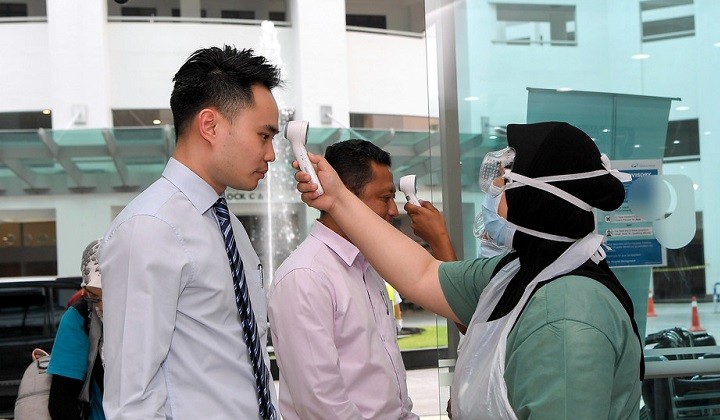Early Preparations, Previous Experience Are Some Reasons Why We Contained Covid-19, Says Report

Subscribe to our new Telegram channel for the latest updates on Covid-19 and other issues.
Early preparedness and planning, experience in previous pandemics, diagnostics, a public health system, contact tracing, and a strict lockdown are some of the measures that helped Malaysia control the spread of Covid-19 according to a report conducted by Drugs for Neglected Diseases Initiative (DNDI).
The report was compiled by Dr Fifa Rahman and was posted on the Health Director-General’s official website.
DNDI listed the reasons as to why Malaysia has managed to contain the coronavirus.
- Malaysia’s preparedness and planning began in December 2019, when they first heard from Chinese authorities that there were cases of acute respiratory illness.
- Previous experience with MERS and the 2002-2003 severe acute respiratory syndrome (SARS) epidemic, including experienced contact tracing teams, was key in enabling a speedy response.
- Malaysia drastically upgraded health facilities and diagnostics capacity in February 2020, including an 86% increment in diagnostics laboratory capacity, 89% increment in critical care bed capacity, and an 49% increase in the number of available ventilators (from 526 to 1034 units).
- Malaysia hospitalised all individuals diagnosed as COVID-19 positive, whether symptomatic and asymptomatic.
- Learning from other countries, including China was essential in identifying “do’s and don’t’s” in the COVID-19 response, including in terms of treatment.
- While evidence on treatments was still murky, Malaysian physicians prioritised monitoring for negative side-effects of treatments and adjusted medication regimens.
Based on testimonials in this report, this relative success is owing to early pandemic preparedness and planning, established contact tracing to enable a robust public health and primary healthcare response, a system of learning established through WebEx mortality reviews, various Whatsapp groups among infectious diseases clinicians in different countries, and from genomic sequence information obtained off open science platforms such as GISAID, and strict lockdown measures.
Drugs for Neglected Diseases Initiative (DNDI)
Mass testing in specific identified areas, as well as diagnostics efficiency, was crucial as well, the report said, to tackle the spread of the virus.
The report also lauded Malaysia’s efforts despite a mass religious event setting off large numbers of infections in early March 2020, prompting the government to enforce the Movement Control Order (MCO).
This reality has challenged the idea that expertise, and indeed the robustness of health systems, ‘is concentrated in, or at least (is) best channeled by, legacy powers and historically rich states.’ Instead – countries in the East have shown innovative and speedy pandemic responses that have kept infections and deaths relatively low compared to the West.
Drugs for Neglected Diseases Initiative (DNDI)
As of 16 June, 8,505 positive cases have been recorded, with 121 deaths and 7,733 recoveries.
Get the latest COVID-19 updates on TRP’s Facebook, Twitter, and Instagram.
Unkempt in both stories and appearance, Hakim loves tech but tech left him on read, previously he used to write about tall buildings and unoccupied spaces that he can't afford, and legend has it that he still can't afford it to this day








